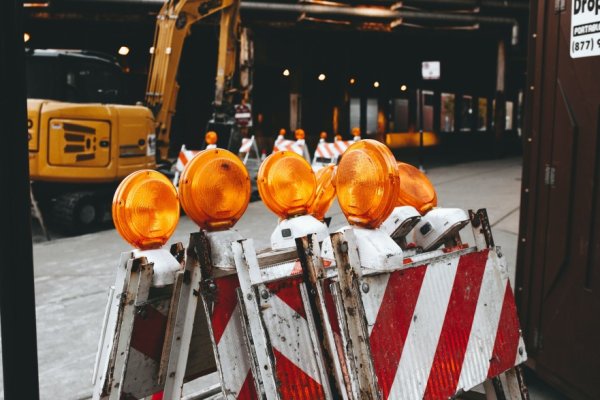09.02.2021

In terms of life cycle assessment, civil engineering is one of the most problematic scopes in the construction sector. This is because of the plentiful land and energy consumption as well as the high emissions caused by civil engineering projects. To prevent this problem, the Resource Plan for Municipal Civil Engineering (ReKoTi) started on February 1st, 2021 under the leadership of the Institute for Infrastructure, Water, Resources and Environment (IWARU) at the Münster University of Applied Sciences.
The plan is to optimize the use of resources in civil engineering and to apply them efficiently, for example by closing mineral material cycles, recycling mineral material flows (construction waste, mining residues, ashes, dust, slag), and developing networking and transfer projects for Münster. Therefore 7 work packages are being implemented together with the city of Münster, the Institute for Transport and Infrastructure at the Karlsruhe University of Applied Sciences, Hermann Dallmann Straßen- und Tiefbau GmbH & Co. KG from Bramsche and Thomas & Bökamp Ingenieurgesellschaft mbH from Münster.
As a project partner, the Chair of Computing in Engineering is responsible for BIM-based data management. The information from the different work packages is digitally recorded and made available to all actors involved in the project. The resulting digital model should represent the basis for the resource plan and guarantee efficient use of resources throughout the entire value chain - from planning, construction, maintenance to dismantling and disposal in conjunction with legal and administrative requirements. The solution approaches developed are to be transferred to other municipalities to ensure efficient resource management also in new projects.
In terms of life cycle assessment, civil engineering is one of the most problematic scopes in the construction sector. This is because of the plentiful land and energy consumption as well as the high emissions caused by civil engineering projects. To prevent this problem, the Resource Plan for Municipal Civil Engineering (ReKoTi) started on February 1st, 2021 under the leadership of the Institute for Infrastructure, Water, Resources and Environment (IWARU) at the Münster University of Applied Sciences.
The plan is to optimize the use of resources in civil engineering and to apply them efficiently, for example by closing mineral material cycles, recycling mineral material flows (construction waste, mining residues, ashes, dust, slag), and developing networking and transfer projects for Münster. Therefore 7 work packages are being implemented together with the city of Münster, the Institute for Transport and Infrastructure at the Karlsruhe University of Applied Sciences, Hermann Dallmann Straßen- und Tiefbau GmbH & Co. KG from Bramsche and Thomas & Bökamp Ingenieurgesellschaft mbH from Münster.
As a project partner, the Chair of Computing in Engineering is responsible for BIM-based data management. The information from the different work packages is digitally recorded and made available to all actors involved in the project. The resulting digital model should represent the basis for the resource plan and guarantee efficient use of resources throughout the entire value chain - from planning, construction, maintenance to dismantling and disposal in conjunction with legal and administrative requirements. The solution approaches developed are to be transferred to other municipalities to ensure efficient resource management also in new projects.